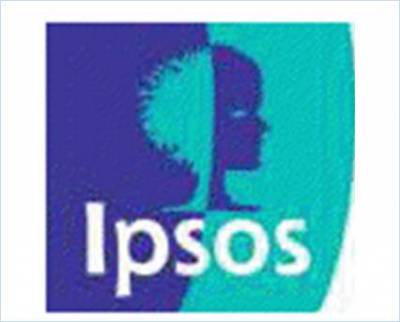India Economic Confidence Dips Further in January: Ipsos Poll
Almost half of Indian Citizens (47%) believe their local economy which impacts their personal finance is good and 50 percent people expect that the economy in their local area will be stronger in next six months.
"The Indian economy is facing a series of interconnected crises as indicated by a sharp decline in economic growth due to tight monetary policy, falling domestic and foreign investment, a depreciating currency, large trade and current accounts deficits, huge stock market losses and near double-digit inflation," says Mick Gordon, Managing Director of Ipsos in India.
"Moreover Eurozone crisis, slow global economic recovery and volatility of the international commodity prices, particularly fuel, has also further adversely affected the Indian economy, which reflects in the sentiments expressed by Indians in the poll," added Gordon.
However, India and China continue to demonstrate comparatively strong national economic confidence, with expectations and assessments across all measures well above Asia Pacific averages once again. Though Chinese assessments of their national economy were slightly below those of India (65% - 3 points) and Australia (70% - +2 points), citizens were far more secure in the present state of the national economy than respondents in Indonesia (45% - steady), South Korea, (17% -down 4) and Japan (8% and steady).
Meanwhile, a gloomy cloud continues to hover over Japan and South Korea this month, with both nations ranking near the bottom of the list on current national, regional, and future economic assessment predictions.
Polling this wave includes results from Hong Kong. It ranks middle of the pack on national (50%) and local (33%) assessments but near the bottom on future assessments of local economic conditions (14%) and ranks considerably lower than Mainland China on all three measures.
The report, titled "Ipsos Global @dvisory: The Economic Pulse of the World' is based on 18,768 recent online interviews in 24 countries around the world; and examines citizens' assessment of the current state of their country's economy for a total global perspective. More than 1000 Indian citizens were interviewed for the study.
A break in the clouds: national economic assessments are up on the global aggregate level and in every region. While the one-point shift represents a continuation of the up one point, down one point pattern for the global aggregate, this is the first time since April 2010 that all geographic regions show an improvement.
The Middle East and Africa is the geographic region with the highest aggregate assessment (+2 to 61%), followed by Latin America (+1 to 47%), North America (+1 to 43%), Asia Pacific (+1 to 43%) and Europe (+2 to 25%).
Europe, which consistently weighs down the global average, has not seen such an improvement in its assessment since February 2011. In fact, all European countries except Sweden (-2 to 72%) show an improvement this wave.
How are some of the other global economies performing?
The average global economic assessment of national economies has been fluctuating up one point, down one point, steadily like a pendulum for the past six months ' this round it is up one point (39%).
Source: Ipsos
Countries with the greatest declines: Indonesia (-5 to 32%), Turkey (-4 to 31%), Mexico (-3 to 36%), Argentina (-3 to 42%) and Spain (-3 to 18%).










Share
Facebook
YouTube
Tweet
Twitter
LinkedIn